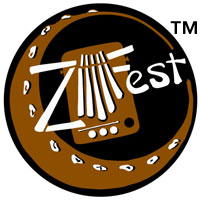Presentations are a different kind of workshop. They are not hands-on music or dance workshops. And presentations cost only $7.50 per hour. So please come! Take in an interesting talk. Hear about Zimbabwean culture!
Cross Cultural Awareness: Talk/Discussion
In a global world where technology links us from different parts of the world in seconds and “our” cultures may not always be fluid and flexible, how do we balance learning, appropriation and dominance with creating a space where we can explore and try things without being accused. Is there some space of CULTURAL INTELLIGENCE that we can go into?
Wrapping the Western Mind, Body, Soul, and Community around Zimbabwean Music
One of the great joys of being a Westerner learning to play Zimbabwean music is the many ways it challenges our assumptions about what music is, how it is learned, how it functions, and how we can relate to it as performers, listeners, dancers, and teachers. This lecture/demonstration will start with an overview of the principles of melody perception discovered in perception laboratories, illustrated with recordings. These principles will then be applied to Shona mbira and marimba music, illustrated by performance. In particular, we will look at how melodies emerge from the collections of notes that mbira ensembles and marimba bands play. We will see how these melodic possibilities relate to Zimbabwean aesthetics contrasted with Western aesthetics. We will look at what that means for learning and performance. We will look at psychological factors involved in learning Zimbabwean music when contrasted with learning Western classical music. I will cover styles and ways of learning and how these connect with teaching styles, with an emphasis on aural learning. Then we will see how all of that relates to the ways people connect through music, and how Zimbabwean ways of relating through music contrast with Western ways of connecting through music. In the words of musicologist John Blacking, this workshop will take us from music as humanly organized sound to music as soundly organized humanity.
Understanding the Secrets Behind the Culture of the People of Zimbabwe
This culture class will explore various scenarios from general social life, the art of joy, the role of music, the role of social relations, the dos and don’ts in the culture of Zimbabwe and what defines the society of Zimbabwe as a unique kind of people.
Shona Language, An Introduction
I will admit that I am biased… but I do think Shona is such an easy language to learn. It does not have too many complex sounds (kind of). Come learn basic greetings, grammatical structures and a sentence or two. The thing with learning Shona is that the language itself is the container of the culture. In learning the language one simultaneously learns cultural practices that might come in handy when traveling to Zimbabwe. I promise not to teach you swear words.
My Experiences at the Kwanongoma College of Music
In the workshop I will be sharing my experiences at the popular Kwanongoma College of Music, an African music college in Bulawayo, Zimbabwe. This will include the curriculum, sharing of some of the learned repertoire, marimba playing technique, performance and life after Kwanongoma.
Using Food To Boost Friendships
This class explores the foods and recipes commonly enjoyed in Zimbabwe. There is a style, reason and cause for some foods to be taken at certain times and every type of food bears some significance among the people. The dining styles, the etiquette and the way people appreciate the food will be discussed. Students will be taught how to prepare traditional foods and will also be encouraged to ask questions as they get to taste some of the food samples.
From Dust to Snow (Story Telling)
A true story of my life experience from the time I was born, including: growing up in the village; music; people; gossip and war time. Wait, there’s more: hanging out in the woods as young herd boys; going to a rural school; the society and justice system; the hierarchy; prestige; fascinations and moving to the city; life in the Ghetto; performing arts; going abroad; politics; life at the markets; political party rivalry; moving to Canada; life in Vancouver; going back home; and the Zimfest thrill 🙂
